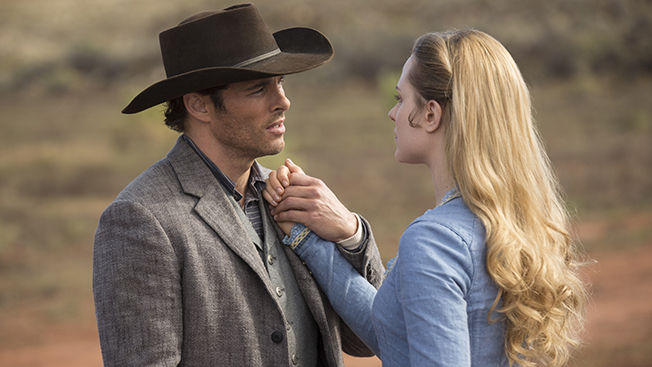Mark your calendar for Mediaweek, October 29-30 in New York City. We’ll unpack the biggest shifts shaping the future of media—from tv to retail media to tech—and how marketers can prep to stay ahead. Register with early-bird rates before sale ends!
While Netflix's Stranger Things took over social TV conversations over the summer, HBO's Westworld dominated the fall.
After premiering in October, the sci-fi reboot of a Michael Crichton film aired to astounding numbers. It averaged 11.7 million viewers throughout the season, beating out Game of Thrones, according to Polygon, during its first season.
Westworld had the most-watched season premiere ever for an original HBO series.
Between the millions of viewers tuning in each week, fans of the show also took to social media to discuss and dissect theories, plots and twists.
"In a landscape of more than 400 scripted series, it's incredibly gratifying when people take the time to think and write about your show," said Jonathan Nolan, one of the creators of Westworld. "Me and [co-creator] Lisa [Joy] were blown away by the fan art and creativity we saw."
Kim Renfro, a senior culture reporter at Business Insider who keeps tabs on the fan frenzy around shows, said, "The pilot had people buzzing on Twitter and Reddit, but everything really ramped up after episode two."
Social media management platform Sprout Social tracks show conversations on Twitter. The day after the first episode aired, more than 90,000 tweets were posted, according to Sprout. The day after the season finale, it was more than twice that number, 190,000 tweets.
"The real impetus of conversation for Westworld came from the mystery," said Renfro. "The trailers and teasers cut together by HBO in the months leading up to its premiere were very cerebral and disorienting, and they didn't know what to make of it."
Renfro noted that those trailers touched on many different genres. It could have been a Western or a futuristic story, and "is that Anthony Hopkins?"
"They really did craft this incredibly intricate story that might have disoriented people at first, but once everyone dove into the details, it really opened up," she said.
Part of the attraction for fans were the Discover Westworld and Delos Incorporated websites, which are run by HBO. Renfro said they had a "treasure trove of information on them, which made the week-to-week experience much more interactive."
Discover #Westworld: https://t.co/JiVuKbXwes pic.twitter.com/5kEej3VGZy
— Westworld (@WestworldHBO) December 8, 2016
A lot of those online experiences sought input from Nolan and Joy.
"They really understand how to extend a show beyond the screen," said Sabrina Caluori, svp of digital media and marketing for HBO. "We wanted to create a campaign that was as dark and as nuanced as the show."
Nolan said he and Joy were "careful not to dive too deeply into the stuff online."
"We didn't want to be swayed by any of their theories," he said. "But we saw enough to realize they were really dissecting the thing and really analyzing."
Beyond the online experiences, Caluori's marketing team also worked with Google to create a chatbot similar to the character of Aeden in the show and debuted a VR experience for the show at TechCrunch Disrupt.
Westworld's second season won't premiere until 2018, which poses a challenge for marketers as well as fans. What do you do in the meantime? If you're a fan, you rewatch.
"There's a huge phenomenon around rewatching a series like this one," said Caluori. "People can watch from the beginning now and see all the clues along the way."
Mostly, Caluori will look to "add fuel to the fire" that the fans of the show have already started.








